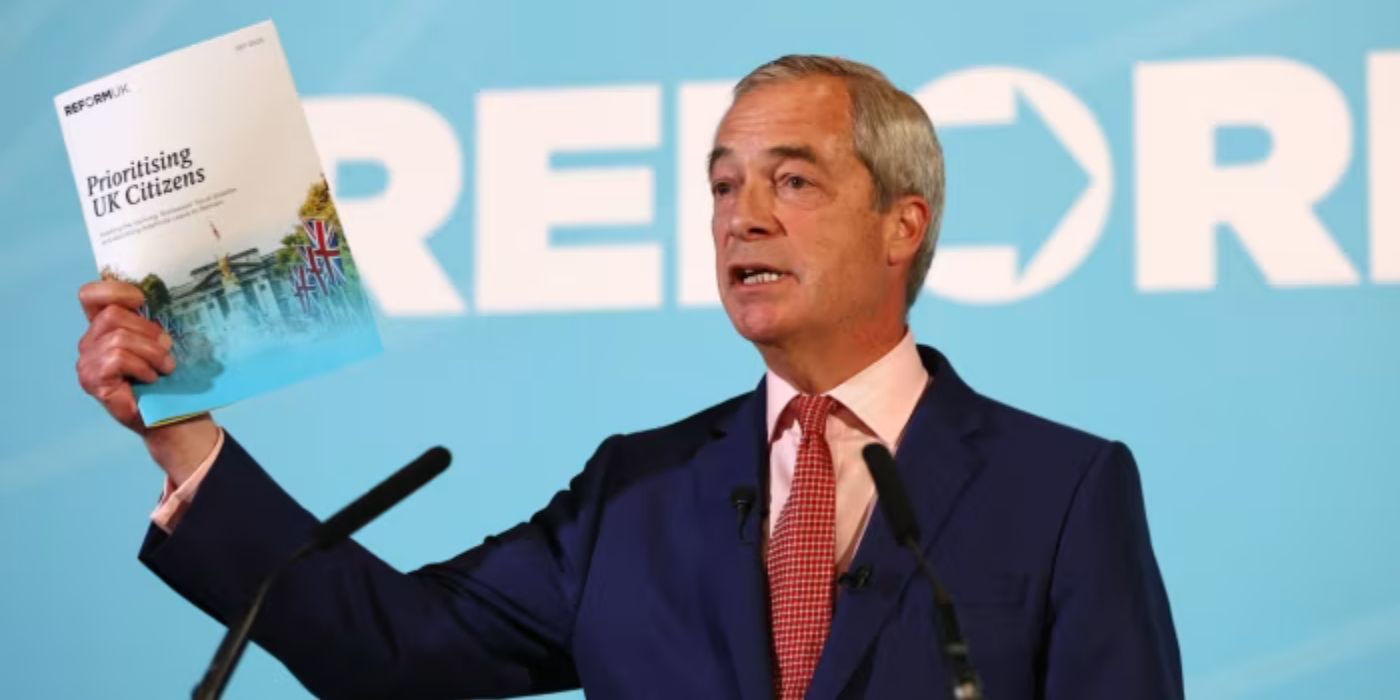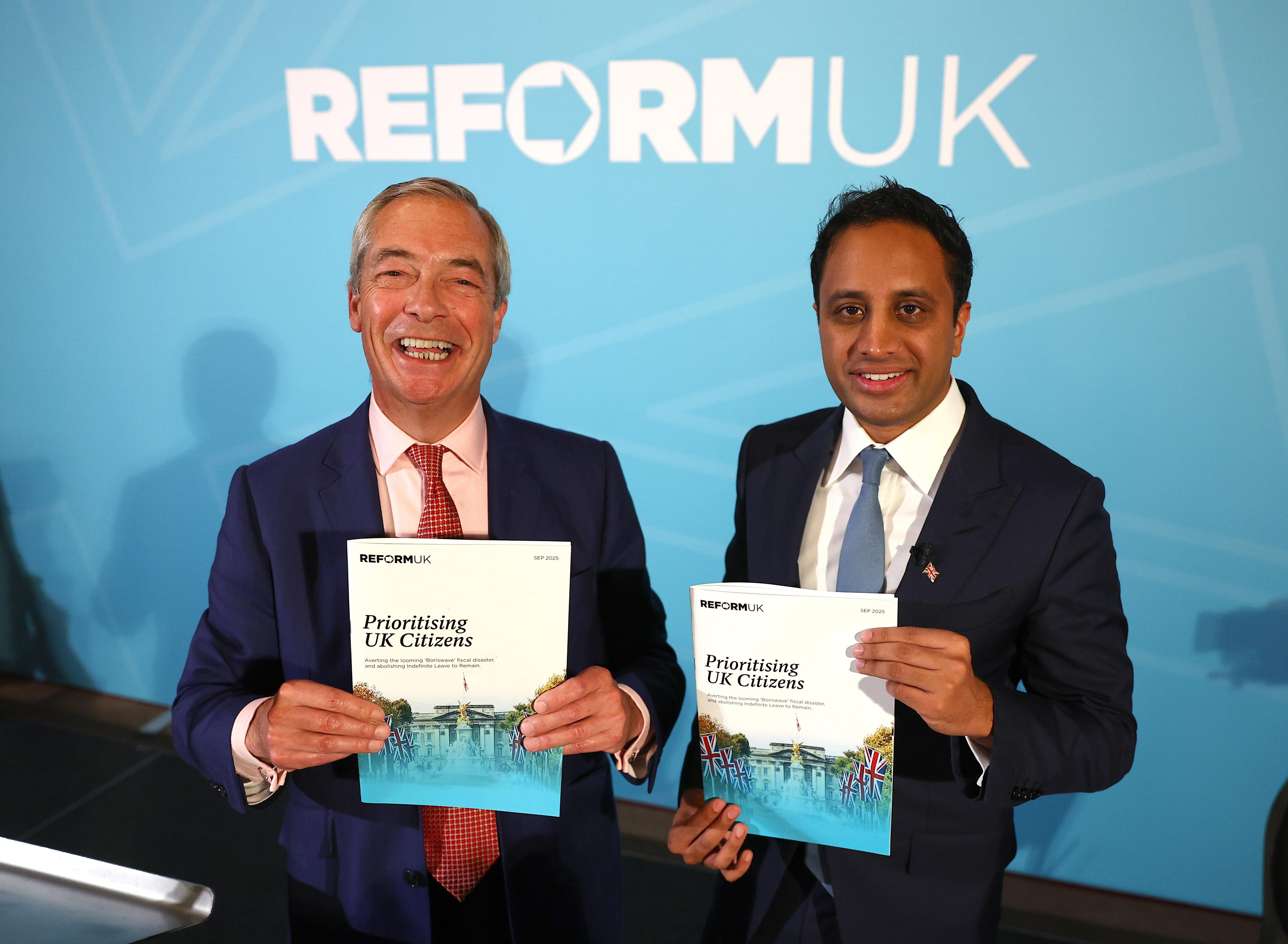

Reform UK leader Nigel Farage has confirmed that if his party wins the next election the right of migrants to qualify for permanent settlement in the UK after five years would be abolished. Under the proposals migrants would have to apply for new visas every five years with much tougher conditions.
Speaking at a press conference Farage said:
“It is not for us to provide welfare for people coming in from all over the world.”

Currently migrants can apply for Indefinite Leave to Remain (ILR) after five years, a route which gives them rights to live study work permanently with access to benefits and is also a pathway to British citizenship. Reform would replace ILR with a renewable visa every five years subject to stricter criteria including higher salary thresholds better English language skills and tighter controls on bringing dependants.
The party said these measures would apply retrospectively, meaning hundreds of thousands of migrants already living in the UK would face new applications or risk losing their settled status. Farage admitted that such changes could split families and disrupt communities but insisted voters deserved advance notice.
“There is no fair play for British people who have been priced out of the market by endless cheap foreign labour,”
He said, arguing the reforms were necessary to protect jobs and wages.
Reform claims its proposals would save £234 billion over several decades by limiting access to welfare and curbing what it describes as “mass low-skill migration.” Farage suggested that figure might even underestimate the true cost, stating the “exact figure” could not be known due to gaps in available data.
The party stressed that EU nationals with settled status protected under the European Union Withdrawal Agreement would not be affected, as they make up the majority of ILR benefit claimants. However, EU nationals outside the Withdrawal Agreement and non-EU migrants would be forced to meet the new criteria or leave the country.
.jpeg)
The proposed changes would also introduce new migration routes focused on economic contribution. Reform said it would expand opportunities for entrepreneur and investor visas, encouraging founders, innovators and those with significant capital to boost the UK economy. An Acute Skills Shortage Visa scheme would be launched to fill critical roles, requiring businesses to train a domestic worker for every foreign hire they make.
Reform also plans to raise the average wait for UK citizenship from six to seven years. Farage described this as part of a broader effort to “wake everybody up to the Boris wave,” referencing the 3.8 million people who entered the UK after Brexit under rules he says were too lenient.
.jpeg)
The government is already consulting on proposals to double the ILR qualifying period from five to ten years, but Farage insists Reform’s plans go further, arguing that current policies fail to address the scale of post-Brexit migration.
Labour’s Chancellor Rachel Reeves dismissed Reform’s claims, saying the savings “have no basis in reality” and accused Farage of misleading voters. She added that the government was already working on measures to restrict migrants’ welfare access.
Tory shadow home secretary Chris Philp accused Reform of copying Conservative policies “in a way that is half-baked and unworkable.” He warned that mass low-skill migration does have fiscal consequences but said Farage’s approach lacked practicality.
.jpeg)
The Liberal Democrats called the plans “not serious,” warning businesses would face chaos and the UK could lose billions in economic growth and tax revenues.
Critics say the retrospective nature of the proposal could open the party to legal challenges and leave families across the country in limbo. Immigration analysts argue no other major party is suggesting such sweeping measures on legal migration. Reform, however, says the UK must follow examples set by countries like the United States and United Arab Emirates to protect its economic stability and sovereignty.
The proposals will now be developed into a formal policy paper that Reform UK plans to unveil at its upcoming party conference. Party strategists are expected to begin a nationwide campaign over the coming weeks to rally support, aiming to pressure both the Conservatives and Labour to clarify their own positions on permanent settlement and welfare access before the next general election.